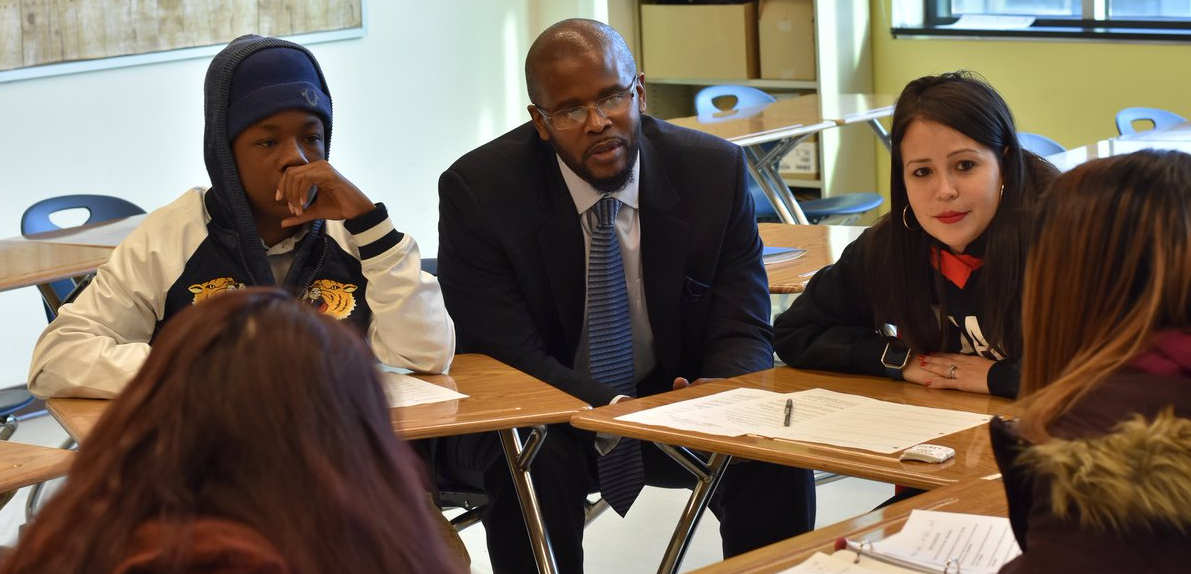
Paul Jacob, December 3, 2017
No one seems especially shocked.
Last week on WAMU, the National Public Radio affiliate that broke the story, the Washington Post’s Robert McCartney called it “fraudulent” and “a terrible embarrassment.” But he quickly added, “It shouldn’t be that much of a surprise, though, to anybody who has been following District schools for any length of time.”
In an analysis for the Post, Valerie Strauss concluded, “It is, unfortunately, familiar.”
The “it” involves Ballou High School, described as “a historically troubled school serving some of the city’s most disadvantaged students in one of the city’s poorest neighborhoods.” However, earlier this year that very school received a great many accolades for dramatically improving its graduation rate and for the remarkable fact that every single one of their 164 graduates had been accepted to a college or university.
Pay-dirt! At long last a turnaround in public education: a significant percentage of poor kids actually receiving an education and getting a leg up, a chance at prosperity.
The next step would be to discover what the folks at Ballou HS are doing and spread their tried-and-true methods far and wide . . . right?
Well, maybe not. There is a fly in the ointment. While everyone fully agrees we must investigate to determine what exactly the teachers and administrators have been doing — with D.C. Mayor Muriel E. Bowser and Antwan Wilson, the D.C. Public Schools Chancellor, announcing the launch of a thorough review — few expect digging up much worthy of emulation.
Here is what we know for sure: In 2015, a mere 51 percent of students graduated. That rose to 57 percent in 2016, and 64 percent earlier this year. Moreover, no one is disputing that all 164 graduates have been accepted to a community college or university.
But a few questions just won’t go away: Did the students deserve to graduate? Are they at all prepared for college?
School documents obtained by WAMU show that “half of the graduates missed more than three months of school last year, unexcused. One in five students was absent more than present — missing more than 90 days of school.” In fact, “[t]he majority of Ballou’s 2017 graduating class missed more than six weeks of school.”
Those numbers are especially problematic given that DCPS policy states that students who miss a class 30 times in a school year “should fail that course.”
Could we be witnessing high achievers, bored because they have already mastered the subject matter being taught?
Jane Spence, chief of secondary schools at DCPS, seemed to hint at such a possibility. “It is expected that our students will be here every day,” she stated. “But we also know that students learn material in lots of different ways. So we’ve started to recognize that students can have mastered material even if they’re not sitting in a physical space.”
Imagine the future savings on school construction and building maintenance!
Or wait just a minute. Though test scores have been on the upswing at Ballou, they remain abysmal.
Results in 2016 on a standardized test called the Partnership for Assessment of Readiness for College and Careers found that only 8 percent of Ballou students “met or approached meeting standards in math and that 9 percent met or approached standards in English.” In 2017, those percentages improved, sure, but were still only 10 percent for math and 22 percent for English.
WAMU reporters spoke with numerous teachers (many interviewed on conditions of anonymity) who flatly claimed they were pressured to give grades that students did not earn, so those students could nonetheless graduate.
“Last year, DCPS put school administrators entirely in control of teacher evaluations. . . .” And those evaluations, which judge teachers and administrators on student performance, can mean as much as $30,000 extra in bonus pay.
The incentive? Obvious. And the disincentives are present, too: “It’s clear from this reporting that administrators, that school system management was putting pressure on teachers to pass and graduate kids” — despite lack of qualifications, argued the Post’s McCartney.
“And those administrators need to be exposed, disciplined and probably in some cases fired.” But don’t hold your breath. McCartney spies a “white-wash” in the offing.
Chancellor Wilson and Secondary Schools Chief Spence walked out of an interview with WAMU when queried: “how did all these kids miss so many days of school, apply to college and still graduate?” Later, at the behest of the mayor they returned but remained oblivious to the detailed accusations being leveled at the Ballou administration — and perhaps even higher up.
In fact, with the investigation barely underway, Wilson has already expressed his intention to keep Ballou Principal Yetunde Reeves, who has decided not to speak publicly about the controversy.
We have seen this movie before. Test scores and graduation rates show real improvement and then the public discovers the results are unreal, fraudulent, the product of teachers cheating, not for their students, but for their own financial gain and at the behest of administrators, who also gain financially.
I wonder how many Ballou graduates can spell corruption.
